Dextroamphetamine (D-AMP)is a central nervous system (CNS) stimulant and an amphetamine enantiomer that is prescribed for the treatment of attention deficit hyperactivity disorder (ADHD) and narcolepsy. It is also used as an athletic performance and cognitive enhancer, and recreationally as an aphrodisiac and euphoriant. Dextroamphetamine was also used in the past by some countries’ military forces to fight fatigue during extended combat operations.
The amphetamine molecule exists as two enantiomers, levoamphetamine and dextroamphetamine. Dextroamphetamine is the dextrorotatory, or ‘right-handed’, enantiomer and exhibits more pronounced effects on the central nervous system than levoamphetamine. Pharmaceutical dextroamphetamine sulfate is available as both a brand name and generic drug in a variety of dosage forms. Dextroamphetamine is sometimes prescribed as the inactive prodrug lisdexamfetamine dimesylate, which is converted into dextroamphetamine after absorption.
Dextroamphetamine is used to treat attention deficit hyperactivity disorder (ADHD) and narcolepsy (a sleep disorder), and is sometimes prescribed off-label for its past medical indications, such as depression and obesity. Long-term amphetamine exposure at sufficiently high doses in some animal species is known to produce abnormal dopamine system development or nerve damage but, in humans with ADHD, pharmaceutical amphetamines, at therapeutic dosages, appear to improve brain development and nerve growth Reviews of magnetic resonance imaging (MRI) studies suggest that long-term treatment with amphetamine decreases abnormalities in brain structure and function found in subjects with ADHD, and improves function in several parts of the brain, such as the right caudate nucleus of the basal ganglia.
Reviews of clinical stimulant research have established the safety and effectiveness of long-term continuous amphetamine use for the treatment of ADHD. Randomized controlled trials of continuous stimulant therapy for the treatment of ADHD spanning 2 years have demonstrated treatment effectiveness and safety. Two reviews have indicated that long-term continuous stimulant therapy for ADHD is effective for reducing the core symptoms of ADHD (i.e., hyperactivity, inattention, and impulsivity), enhancing quality of life and academic achievement, and producing improvements in a large number of functional outcomes across 9 categories of outcomes related to academics, antisocial behavior, driving, non-medicinal drug use, obesity, occupation, self-esteem, service use (i.e., academic, occupational, health, financial, and legal services), and social function. One review highlighted a nine-month randomized controlled trial of amphetamine treatment for ADHD in children that found an average increase of 4.5 points, continued increases in attention, and continued decreases in disruptive behaviors and hyperactivity Another review indicated that, based upon the longest follow-up studies conducted to date, lifetime stimulant therapy that begins during childhood is continuously effective for controlling ADHD symptoms and reduces the risk of developing a substance use disorder as an adult
How to use
Read the Medication Guide and, if available, the Patient Information Leaflet provided by your pharmacist before you start taking dextroamphetamine and each time you get a refill. If you have any questions, ask your doctor or pharmacist.
Take this medication with or without food as directed by your doctor, usually 1 to 3 times a day. The first dose is usually taken when you wake up in the morning. If more doses are prescribed, take them as directed by your doctor, usually 4-6 hours apart. Taking this medication late in the day may cause trouble sleeping (insomnia).
If you are using the liquid form of this medication, carefully measure the dose using a special measuring device/spoon. Do not use a household spoon because you may not get the correct dose.
The dosage is based on your medical condition and response to treatment. Your doctor may adjust your dose to find the dose that is best for you. Follow your doctor’s instructions carefully.
Use this medication regularly to get the most benefit from it. To help you remember, take it at the same time(s) each day.
During treatment, your doctor may occasionally recommend stopping the medication for a short time to see whether there are any changes in your behavior and whether the medication is still needed.
If you suddenly stop using this medication, you may have withdrawal symptoms (such as severe tiredness, sleep problems, mental/mood changes such as depression). To help prevent withdrawal, your doctor may lower your dose slowly. Withdrawal is more likely if you have used dextroamphetamine for a long time or in high doses. Tell your doctor or pharmacist right away if you have withdrawal.
Though it helps many people, this medication may sometimes cause addiction. This risk may be higher if you have a substance use disorder (such as overuse of or addiction to drugs/alcohol). Do not increase your dose, take it more often, or use it for a longer time than prescribed. Properly stop the medication when so directed.
When this medication is used for a long time, it may not work as well. Talk with your doctor if this medication stops working well.
Tell your doctor if your condition does not improve or if it worsens.
Side effects
Nausea, stomach upset, cramps, loss of appetite, diarrhea, dry mouth, headache, nervousness, dizziness, trouble sleeping, sweating, weight loss, irritability, and restlessness may occur. If any of these effects persist or worsen, tell your doctor or pharmacist promptly.
Remember that your doctor has prescribed this medicine because he or she has judged that the benefit to you is greater than the risk of side effects. Many people using this medication do not have serious side effects.
This medication may raise your blood pressure. Check your blood pressure regularly and tell your doctor if the results are high.
Tell your doctor right away if you have any serious side effects, including: signs of blood flow problems in the fingers or toes (such as coldness, numbness, pain, or skin color changes), unusual wounds on the fingers or toes, mental/mood/behavior changes (such as agitation, aggression, mood swings, depression, hallucinations, abnormal thoughts/behavior, thoughts of suicide), uncontrolled movements, muscle twitching/shaking, outbursts of words/sounds, change in sexual ability/interest, swelling ankles/feet, extreme tiredness, significant unexplained weight loss, frequent/prolonged erections (in males).
Get medical help right away if you have any very serious side effects, including: shortness of breath, chest/jaw/left arm pain, severe headache, fainting, fast/pounding/irregular heartbeat, seizures, weakness on one side of the body, slurred speech, confusion, blurred vision.
This medication may increase serotonin and rarely cause a very serious condition called serotonin syndrome/toxicity. The risk increases if you are also taking other drugs that increase serotonin, so tell your doctor or pharmacist of all the drugs you take (see Drug Interactions section). Get medical help right away if you develop some of the following symptoms: fast heartbeat, hallucinations, loss of coordination, severe dizziness, severe nausea/vomiting/diarrhea, twitching muscles, unexplained fever, unusual agitation/restlessness.
Warnings & Precautions
Before taking this medication, tell your doctor or pharmacist if you are allergic to it; or to other sympathomimetic drugs (such as amphetamine or lisdexamfetamine); or if you have any other allergies. This product may contain inactive ingredients, which can cause allergic reactions or other problems. Talk to your pharmacist for more details.
Before using this medication, tell your doctor or pharmacist your medical history, especially of: blood circulation problems (such as Raynaud’s disease), certain mental/mood conditions (such as severe agitation, psychosis), personal/family history of mental/mood disorders (such as bipolar disorder, depression, psychotic disorder, suicidal thoughts), heart problems (including irregular heartbeat/rhythm, coronary artery disease, heart failure, cardiomyopathy, problems with the heart structure such as valve problems), family history of heart problems (such as sudden death/irregular heartbeat/rhythm), history of stroke, high blood pressure, overactive thyroid (hyperthyroidism), a certain eye problem (glaucoma), seizures, personal or family history of a substance use disorder (such as overuse of or addiction to drugs/alcohol), personal or family history of uncontrolled muscle movements (such as Tourette’s syndrome).
This drug may make you dizzy. Alcohol or marijuana (cannabis) can make you more dizzy. Do not drive, use machinery, or do anything that needs alertness until you can do it safely. Limit alcoholic beverages. Talk to your doctor if you are using marijuana (cannabis).
Before having surgery, tell your doctor or dentist about all the products you use (including prescription drugs, nonprescription drugs, and herbal products).
Children may be more sensitive to the side effects of this drug, especially weight loss. This medication may slow down a child’s growth. The doctor may recommend temporarily stopping the medication from time to time to reduce this risk. Monitor your child’s weight and height. Consult your doctor or pharmacist for more details.
Older adults may be more sensitive to the side effects of this drug, especially chest pain, trouble sleeping, or weight loss.
During pregnancy, this medication should be used only when clearly needed. Discuss the risks and benefits with your doctor. Infants born to mothers who are dependent on this medication may be born too soon (premature) and have low birth weight. They may also have withdrawal symptoms. Tell your doctor right away if you notice possible mood changes, agitation, or unusual tiredness in your newborn.
This medication passes into breast milk and may have undesirable effects on a nursing infant. Therefore, breast-feeding is not recommended while using this drug. Consult your doctor before breast-feeding.
Storage
Store at room temperature away from light and moisture. Do not store in the bathroom. Keep all medications away from children and pets.
Do not flush medications down the toilet or pour them into a drain unless instructed to do so. Properly discard this product when it is expired or no longer needed. Consult your pharmacist or local waste disposal company.
Drug interactions
Drug interactions may change how your medications work or increase your risk for serious side effects. This document does not contain all possible drug interactions. Keep a list of all the products you use (including prescription/nonprescription drugs and herbal products) and share it with your doctor and pharmacist. Do not start, stop, or change the dosage of any medicines without your doctor’s approval.
Taking MAO inhibitors with this medication may cause a serious (possibly fatal) drug interaction. Avoid taking MAO inhibitors (isocarboxazid, linezolid, methylene blue, moclobemide, phenelzine, procarbazine, rasagiline, safinamide, selegiline, tranylcypromine) during treatment with this medication. Most MAO inhibitors should also not be taken for two weeks before treatment with this medication. Ask your doctor when to start or stop taking this medication.
Some products have ingredients that could raise your heart rate or blood pressure. Tell your pharmacist what products you are using, and ask how to use them safely (especially cough-and-cold products or diet aids).
The risk of serotonin syndrome/toxicity increases if you are also taking other drugs that increase serotonin. Examples include street drugs such as MDMA/ “ecstasy,” St. John’s wort, certain antidepressants (including SSRIs such as fluoxetine/paroxetine, SNRIs such as duloxetine/venlafaxine), among others. The risk of serotonin syndrome/toxicity may be more likely when you start or increase the dose of these drugs.
Dextroamphetamine is very similar to amphetamine or lisdexamfetamine. Do not use medications containing amphetamine or lisdexamfetamine while using dextroamphetamine.
This medication may interfere with certain medical/laboratory tests (including blood and urine steroid levels, brain scan for Parkinson’s disease), possibly causing false test results. Make sure laboratory personnel and all your doctors know you use this drug.
Overdose
If someone has overdosed and has serious symptoms such as passing out or trouble breathing, call 911. Otherwise, call a poison control center right away. US residents can call their local poison control center at 1-800-222-1222. Canada residents can call a provincial poison control center. Symptoms of overdose may include: severe mental/mood changes, seizures, severe/persistent headache, severe restlessness, fast breathing.


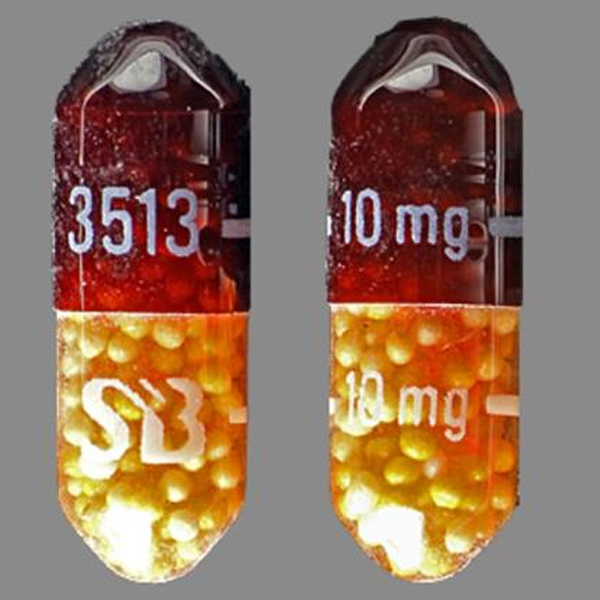
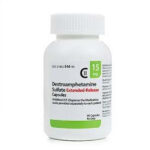
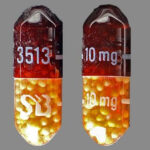
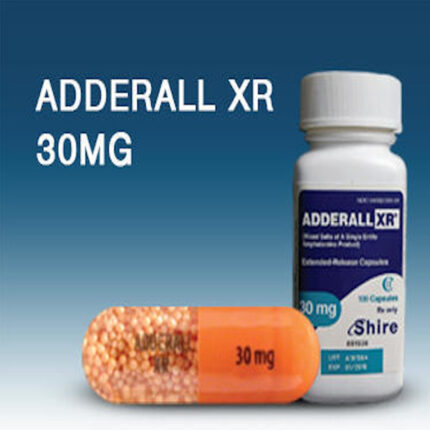
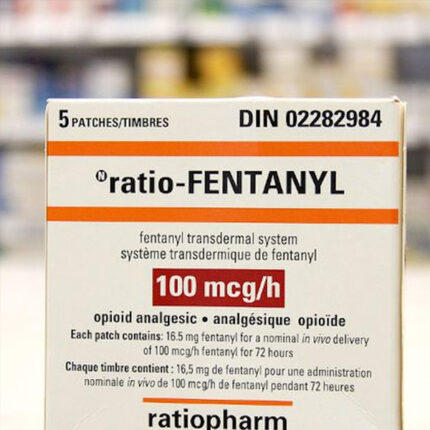

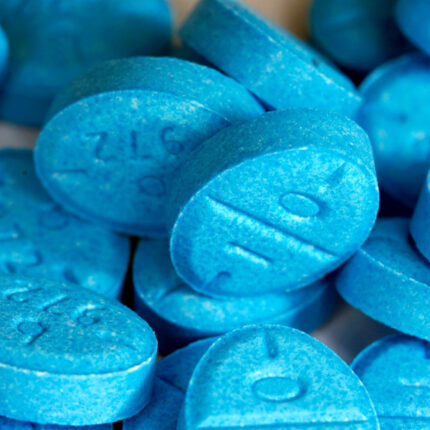

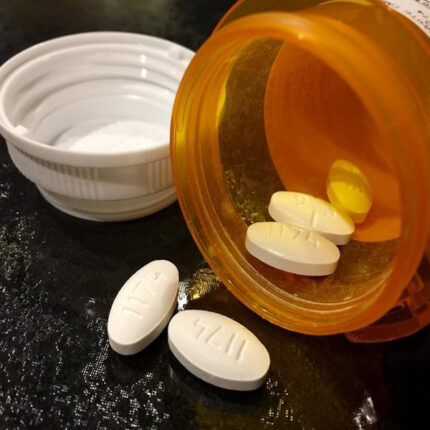
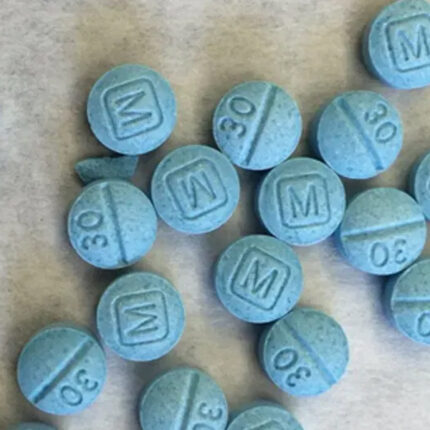
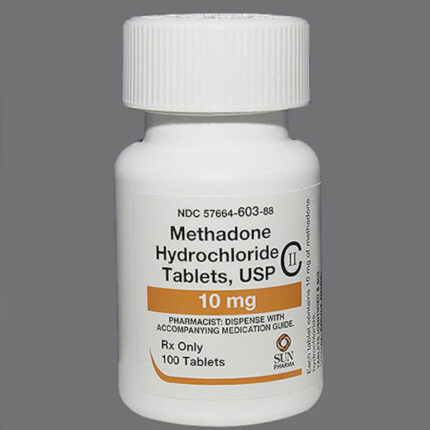
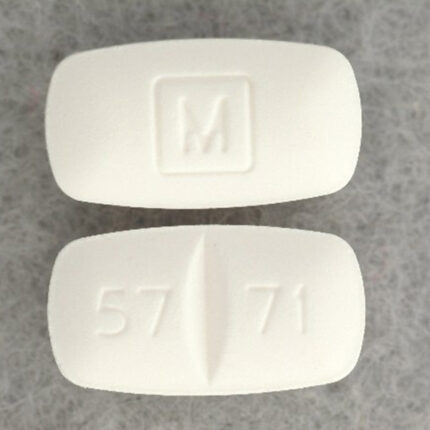
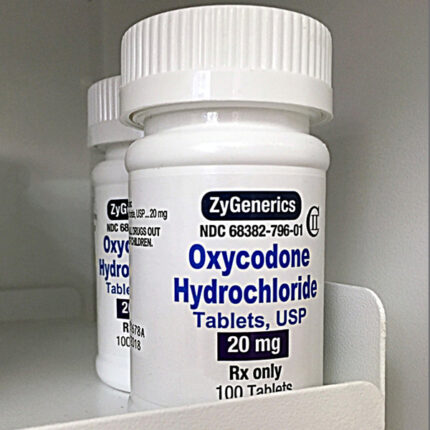
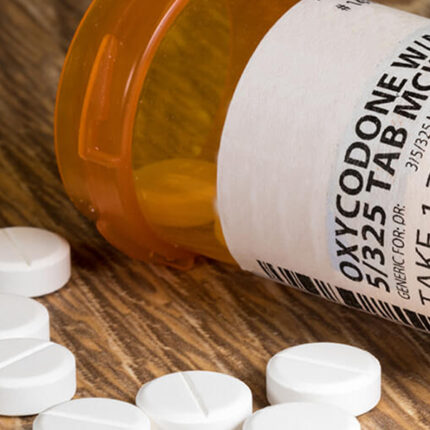
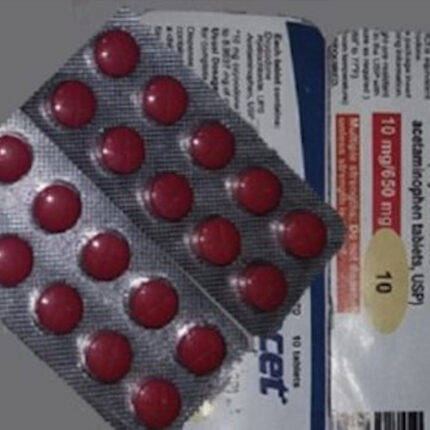
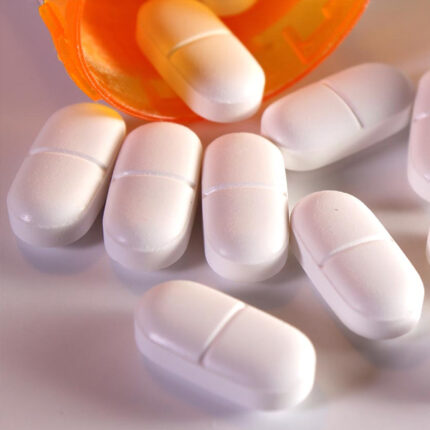

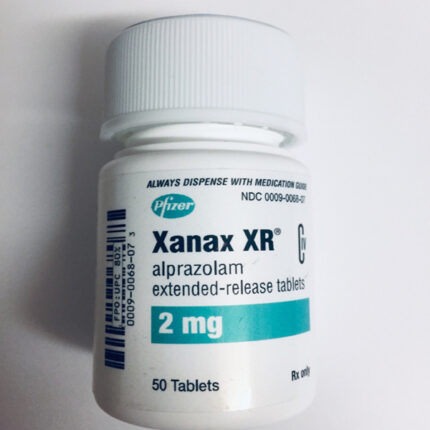
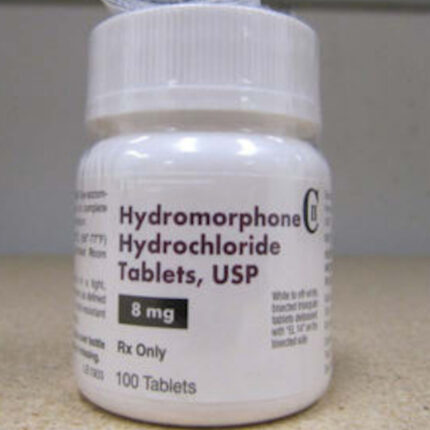
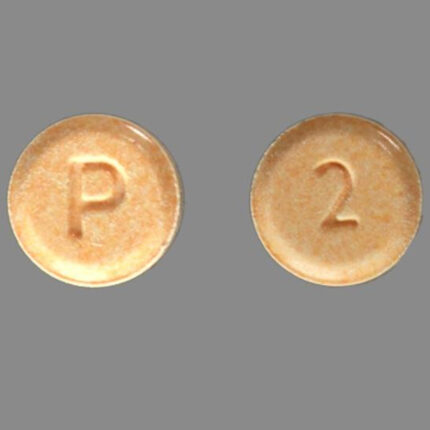
Reviews
There are no reviews yet.